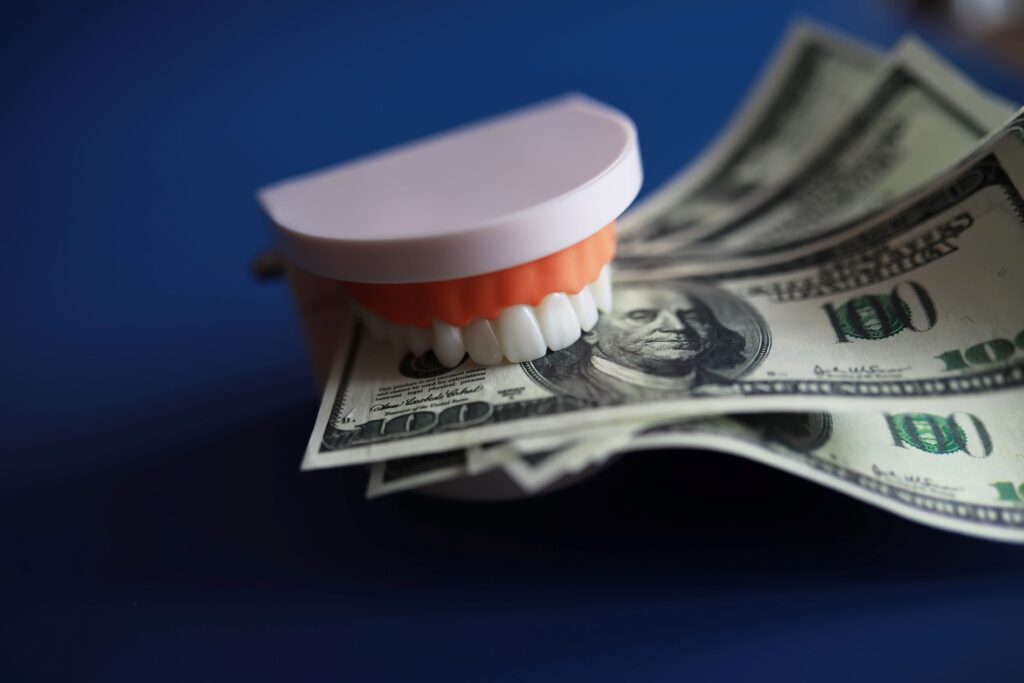
Dentures are the tried-and-true solution for tooth loss because they’re a versatile way to restore your smile’s appearance and functionality. Whether you’ve lost several teeth sporadically throughout your mouth or need to rebuild entire arches, your dentist can provide customized replacements designed to look and feel as lifelike as possible.
Many patients want to know what they can expect to pay for their dentures before proceeding with this treatment, but the cost can vary significantly depending on your unique circumstances. Continue reading to learn more about 3 things that can potentially influence the pricing!
Factor #1: Your Dental Insurance Policy
Dental insurance can be a simple and effective way to reduce your out-of-pocket expenses for everything from preventive checkups and cleanings to replacing missing teeth. Many of these policies cover up to 100% of standard services and anywhere from 50% to 80% of other major treatments, such as getting dentures.
However, there are no guarantees, and your plan might have additional restrictions you should be aware of, like an annual deductible that must be met or a waiting period that must pass before benefits kick in. If you’re unsure whether your policy will help pay for your restorations, your dental team may be able to help you find the information or fill out paperwork and claims applications to maximize your available benefits.
Factor #2: The Type of Dentures
There are several types of dentures, each intended to meet the unique needs of patients facing different circumstances. For example, patients who have lost entire rows will require a complete set to rebuild their arches. Meanwhile, those missing several teeth throughout their mouths will only require a partial prosthetic, which tends to cost less because it includes fewer pontics (artificial teeth).
However, dentures that are supported by dental implants tend to be more expensive because they involve oral surgery. If you’re concerned about your budget, you should let your dentist know during your initial appointment so they can take that into consideration when suggesting an appropriate solution.
Factor #3: Other Required Treatments
Before your dentist can provide custom-fitted dentures, they must examine your mouth to ensure you’re a good candidate. If they find any areas of concern, like cavities or gum disease, they’ll need to treat them first so they don’t interfere with your prosthetics.
Furthermore, if you have lost most but not all your teeth, the remaining stragglers may need to be extracted so your restoration can fit correctly. You’ll be responsible for paying for any additional procedures required for your mouth to be healthy enough to support your new teeth.
Your dentist can provide a more detailed estimate based on your individual circumstances after your initial dentures consultation!
About the Practice
At Goodlettsville Smiles, you and your family benefit from two dentists who are passionate about helping people of all ages build and maintain beautiful, healthy smiles. Dr. McClain and Dr. Patel collaborate to provide a comprehensive menu of services to meet all your needs under one roof, including dentures. Their caring approach is combined with advanced technology to deliver comfortable, accurate results you can count on. You’re welcome to request an appointment on the website or by calling (615) 819-1644.

